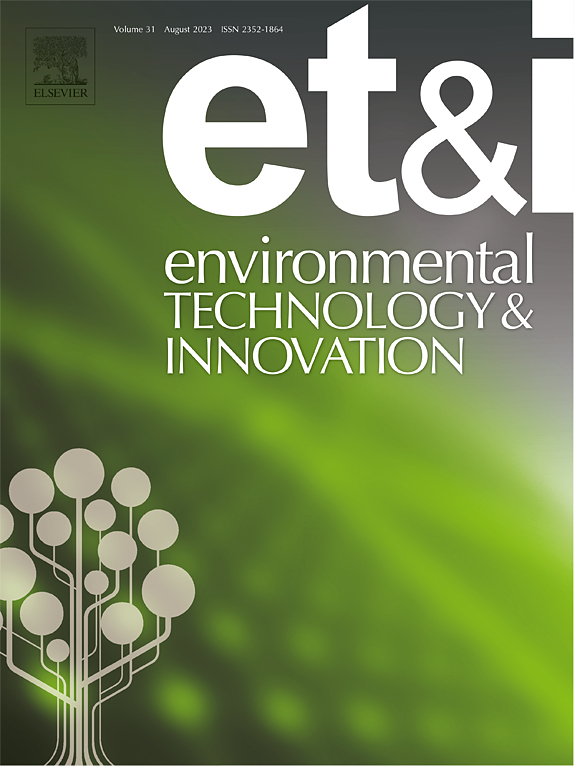Oligotrophy biochar stimulates the generation of salicylic acid from soybean roots by increasing nutrient and oxidative stress
IF 6.7
2区 环境科学与生态学
Q1 BIOTECHNOLOGY & APPLIED MICROBIOLOGY
引用次数: 0
Abstract
The accumulation of allelochemicals in farming land has attracted a great deal of research attention, and biochar has shown positive effects in alleviating allelopathy. This study investigated how oligotrophic biochar application modulated salicylic acid (SA) generation in soybean roots through nutrient and oxidative stress pathways. Biochars were applied to soybean cultivation, with analyses conducted on nutrient adsorption, allelochemical profiles, and plant growth parameters. Results revealed that biochar suppressed benzoic acid (BA) while elevating SA levels, which correlated with the presence of persistent free radicals (PFRs) and nutrient retention. The retention of phosphorus (P) and ammonium (NH₄⁺-N) dominated plant height reduction, surpassing oxidative stress effects linked to PFRs. Multivariate linear regression (MLR) identified P retention as the primary driver of SA generation, linked to adaptive phosphorus solubilization via acid secretion. Conversely, malondialdehyde (MDA) accumulation resulted from lipoxygenase-mediated lipid peroxidation under nutrient stress and PFRs-induced oxidative stress. The strong adsorption of P and nitrate (NO₃⁻-N) by biochar exacerbated soil oligotrophy, triggering SA overproduction as a stress compensation mechanism. The significant correlation between SA and MDA indicated bidirectional stress signaling, wherein allelochemicals exacerbate oxidative damage while activating defense responses. These findings emphasize the dual role of biochar as both a stress inducer and an allelopathy modulator, highlighting the necessity for optimizing pyrolysis and developing soil-specific strategies to balance agricultural benefits with ecological risks.
求助全文
约1分钟内获得全文
求助全文
来源期刊

Environmental Technology & Innovation
Environmental Science-General Environmental Science
CiteScore
14.00
自引率
4.20%
发文量
435
审稿时长
74 days
期刊介绍:
Environmental Technology & Innovation adopts a challenge-oriented approach to solutions by integrating natural sciences to promote a sustainable future. The journal aims to foster the creation and development of innovative products, technologies, and ideas that enhance the environment, with impacts across soil, air, water, and food in rural and urban areas.
As a platform for disseminating scientific evidence for environmental protection and sustainable development, the journal emphasizes fundamental science, methodologies, tools, techniques, and policy considerations. It emphasizes the importance of science and technology in environmental benefits, including smarter, cleaner technologies for environmental protection, more efficient resource processing methods, and the evidence supporting their effectiveness.
 求助内容:
求助内容: 应助结果提醒方式:
应助结果提醒方式:


